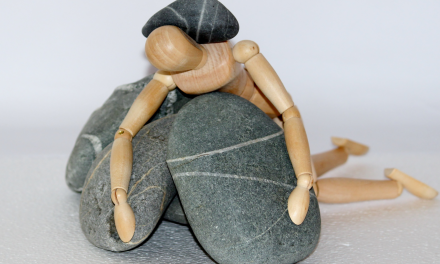Life is stressful. It’s even more stressful when you have to come home from a tough day at work then sit down and write. How do you shake off the day’s stresses and focus on your fiction? (Or nonfiction or poetry?) How do you give your characters the attention they deserve?
Switch off distractions
Distractions are everywhere. Even if you just have your laptop open there are literally millions of other things you could be doing instead of writing. Browsing social media; watching videos; reading articles; talking to friends. Even research for your writing.
All of these things make it harder to write. With the average attention span being just 8 seconds in 2017, sitting still at a desk to write is becoming harder and harder.
But it’s the only way to write.
Switch off ALL your distractions. Go into a room without a TV. Turn off the internet. Switch off your phone. Put a sign on the door warning those you live with to stay away. Go hide in a cave or under a rock if that’s what it takes.
Find a place

Find a place where you write and stick to it.
For me, it’s the sofa in our living room. This is where I do most of my first drafts. It’s relaxed, it’s comfortable (although probably bad for my posture), and it’s warm.
When it’s time to edit, I relocate to the box room (otherwise known as my writing room/the dumping ground) and sit at my desk with my external monitor. This is when things get serious: I have my notes open on one screen and the manuscript on another.
Build a routine
Routines sound boring, but they’re important. After a while, they make things we once found difficult automatic.
Take driving: when we first learn, it’s difficult to remember what foot goes where and when. But the longer you drive for, the more second nature it becomes.
There’s no reason you can’t train your brain to feel the same about writing. This time is for writing. Or this location is for writing. Or this notebook is for writing. You get the idea.
Routines do work. You just have to be willing to put the effort in to start them off.
Drown out the noise

Even with distractions switched off, there are some things you have no control over. Like the roadworks down the road. Or you neighbour’s screaming baby.
Put in some headphones and either a) listen to some background noise, or b) listen to a playlist tailored to what you’re writing. I have playlists for each of my characters, novels, series, and different emotions. It takes a while too create them, but they definitely help me to channel my mood.
When you’re short on time and need to switch from a romantic mood to an angry one, having tailored playlists keeps you focused. Just so long as you shake off that anger before talking to your significant other.
If you find music too distracting—as many people do—there are plenty of sites and playlists out there that will play you white noise. Yes, really. I don’t use them so don’t want to recommend any, but if you have any you’d like to recommend please do mention them in the comments 🙂
Stay hydrated
It’s amazing the difference being dehydrated can make to our productivity levels.
A study by Loughborough University found that when you drive dehydrated, you make as many mistakes as you do when driving drunk. While Hemingway was happy to write drunk, you’ll achieve more if you’re clear-headed.
[bctt tweet=”While Hemingway was happy to write drunk, you’ll achieve more if you’re clear-headed.” username=”KristinaAurelia”]
Don’t write hungry
Just like being dehydrated makes it hard to concentrate, so does being hungry. Have some food before you sit down to write, that way your stomach isn’t grumbling and you’re not thinking about that bacon sandwich you should’ve had.
I definitely find that if I start to write when I’m hungry, it becomes harder and harder to focus faster.
Giving something your full attention can make you hungry as it uses energy, so you want to start on a full stomach, not an empty one.
Set a goal

Don’t just sit down at your desk and say you’re going to write. Doing so is intimidating.
[bctt tweet=”Don’t just sit down at your desk and say you’re going to write. Decide what to write first.” username=”KristinaAurelia”]
Plan out what you’re going to do. It could be to focus on a particular scene, hit a word count, or write for a set period of time. Once you hit your goal, reward yourself. Then, if you feel like it, keep going.
I always aim for 1000 words a day. My reward is usually an episode of something (my current favourite is This is Us), or a chocolate bar.
Having a clear goal gives us something to work towards and helps to motivate us. Since I’ve been tracking what I read on Goodreads I’ve found I read a lot more than I used to because I want to push myself and see how much I can read if I really try. Writing is no different. You’ll only get faster and write better through practise.
Have a reward waiting
Having a reward waiting for you—your favourite food, a hot bath, a walk with the dog—helps to motivate you to reach your goal faster.
Not only that, but you learn to associate writing with the feeling your reward gives you. You’ll be left feeling all warm, fuzzy, and productive, and raring to write some more to replicate that feeling!
Tl; dr
- Switch off ALL distractions
- Find a place and stick to it
- Build a routine
- Drown out the noise
- Stay hydrated
- Don’t follow Hemingway’s advice—write sober
- Eat before you start
- Have a clear goal before you start
- Have a reward waiting for you at the end
- Repeat!
Over to You
How do you get yourself into the writing zone? Share your stories in the comments below!








Two other things in addition to the great advice/suggestions really work for me. I get some fresh air for half an hour or, if the weather’s lousy, I’ll do 20 minutes exercise/dancing to my something on my workout play list.
They’re really good ideas, Carol! Going for a walk or doing some sort of exercise when you can’t concentrate are great ways to clear your head 🙂
Great ideas..I do the walking the plot thing also…
All great ideas. I’m a morning person, I get up around 5am and head out to the living room where it’s quiet and I start writing. Forget it after work, I’m exhausted and too easily distracted.